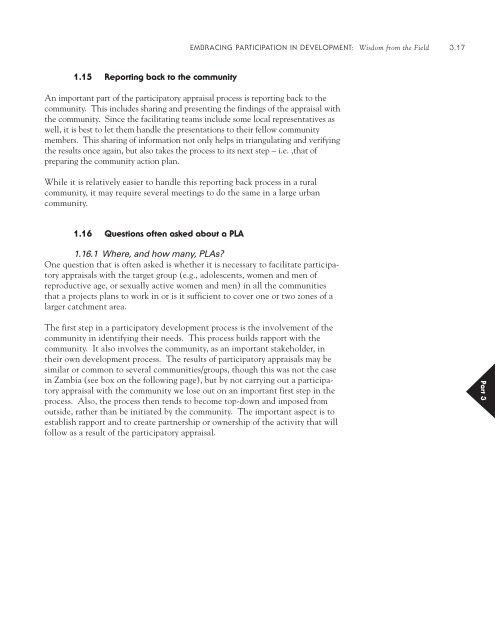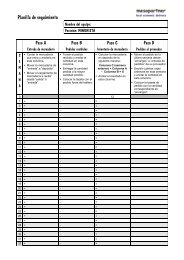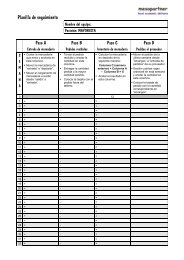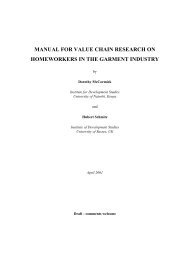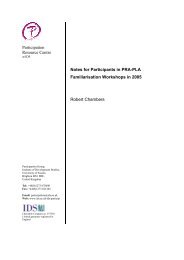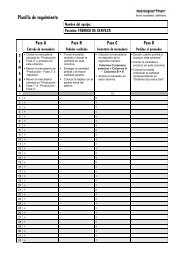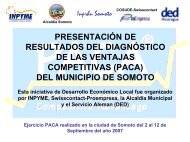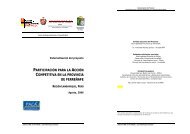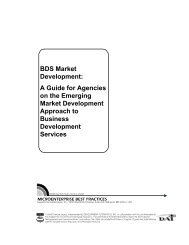PRA-Manual Embracing Participitation tools-only.pdf - PACA
PRA-Manual Embracing Participitation tools-only.pdf - PACA
PRA-Manual Embracing Participitation tools-only.pdf - PACA
Create successful ePaper yourself
Turn your PDF publications into a flip-book with our unique Google optimized e-Paper software.
EMBRACING PARTICIPATION IN DEVELOPMENT: Wisdom from the Field 3.17<br />
1.15 Reporting back to the community<br />
An important part of the participatory appraisal process is reporting back to the<br />
community. This includes sharing and presenting the findings of the appraisal with<br />
the community. Since the facilitating teams include some local representatives as<br />
well, it is best to let them handle the presentations to their fellow community<br />
members. This sharing of information not <strong>only</strong> helps in triangulating and verifying<br />
the results once again, but also takes the process to its next step – i.e. ,that of<br />
preparing the community action plan.<br />
While it is relatively easier to handle this reporting back process in a rural<br />
community, it may require several meetings to do the same in a large urban<br />
community.<br />
1.16 Questions often asked about a PLA<br />
1.16.1 Where, and how many, PLAs?<br />
One question that is often asked is whether it is necessary to facilitate participatory<br />
appraisals with the target group (e.g., adolescents, women and men of<br />
reproductive age, or sexually active women and men) in all the communities<br />
that a projects plans to work in or is it sufficient to cover one or two zones of a<br />
larger catchment area.<br />
The first step in a participatory development process is the involvement of the<br />
community in identifying their needs. This process builds rapport with the<br />
community. It also involves the community, as an important stakeholder, in<br />
their own development process. The results of participatory appraisals may be<br />
similar or common to several communities/groups, though this was not the case<br />
in Zambia (see box on the following page), but by not carrying out a participatory<br />
appraisal with the community we lose out on an important first step in the<br />
process. Also, the process then tends to become top-down and imposed from<br />
outside, rather than be initiated by the community. The important aspect is to<br />
establish rapport and to create partnership or ownership of the activity that will<br />
follow as a result of the participatory appraisal.<br />
Part 3


